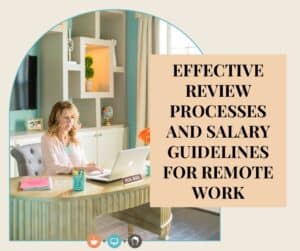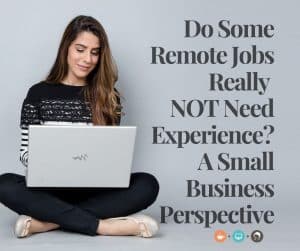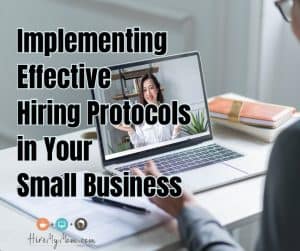Effective Review Processes and Salary Guidelines for Remote Work

We wanted to offer a few quick tips and points for businesses and job seekers alike entering the market in this new year:
Finding the Right Fit for Remote Work
The success of a remote work setup heavily relies on selecting individuals who excel in a virtual environment. Employers should prioritize qualities like self-discipline, strong communication skills, and the ability to work independently. Reviewing a candidate’s experience with digital tools and remote collaboration platforms can also offer critical insights into their suitability. Employers may find it beneficial to incorporate trial periods or short project-based tasks in the hiring process. This allows them to observe potential hires’ performance without direct supervision, giving both parties a chance to evaluate compatibility before committing to a long-term employment relationship.
Candidates should spend time considering the pros and cons of working remotely before applying to a remote position. Are you self-motivated? Can you work without lots of supervision? Are you ready to set your own schedule? While these are great benefits of remote work, not everyone thrives in that sort of environment. While you will have a team of people you work with, you will spend lots of time alone, and that is something you must consider before going into remote work.
Setting Remote Work Expectations
Providing detailed job descriptions and setting measurable goals can help ensure that everyone understands their tasks and contributions. Defining roles and responsibilities also fosters accountability and streamlines workflow.
Regular communication is key. Whether through weekly team meetings or daily check-ins, consistent interaction helps prevent misunderstandings and keeps everyone aligned. It’s important to agree on communication norms and schedules to ensure that all team members are on the same page.
This goes for both sides of the coin: businesses and job seekers alike. Businesses, let job seekers know what the expected schedules for regular meetings will be. Job seekers, let companies know what sort of check-in schedule works best for you; while some like monthly meetings, others might prefer quarterly. Communicating from the start will help everyone understand expectations.
Conducting Successful Evaluations for Remote Staff
Regular feedback sessions and virtual check-ins play a significant role in maintaining communication and fostering growth. These interactions provide opportunities to discuss achievements, challenges, and areas where employees can enhance their skills. Encouraging an open dialogue allows staff to feel supported and motivated in their remote work environment.
Employers should utilize key performance indicators (KPIs) tailored to individual roles to track progress and identify areas for improvement. Clear performance metrics aligned with company objectives ensure that remote staff are meeting expectations and contributing effectively to the team.
Job seekers should also ask businesses if they offer regular feedback. If not, you can ask if that is something that can be implemented. It is important to get feedback so you understand if you are doing things correctly. Additionally, these meetings can be great ways to showcase your skills and how you deserve a raise!
Salary Guidelines for Remote Positions
When setting salaries for remote positions, companies must consider industry standards and location-based pay. Balancing a company budget with competitive compensation is crucial. Offering salaries that are both fair and appealing can help attract and retain top talent. Additionally, companies can potentially save up to $10,600 per employee by embracing remote work which provides financial flexibility to offer competitive packages. On the employee side, working remotely can lead to significant savings, with the average worker saving up to $12,000 per year. These savings can be factored into salary negotiations, making remote positions financially attractive for potential hires.
If you are a business or job seeker looking for more information on the hiring process, check out our training and courses for help from HR experts.





